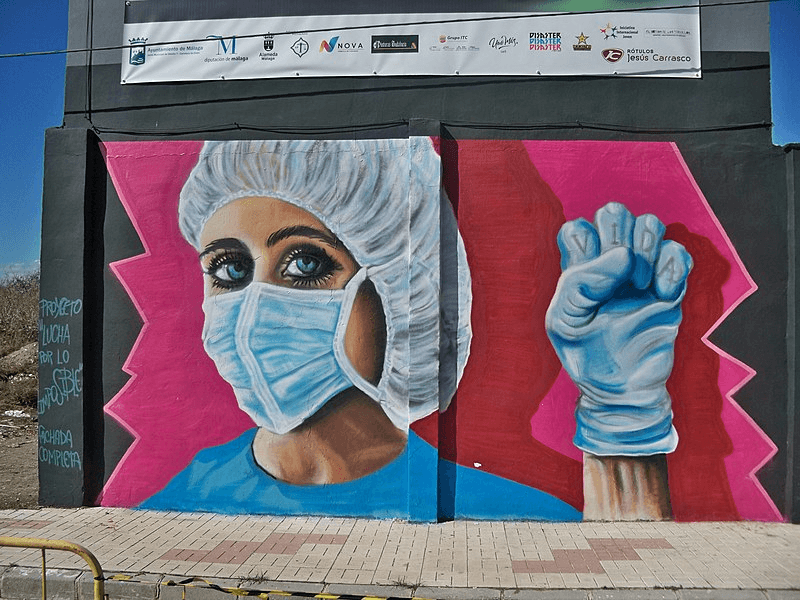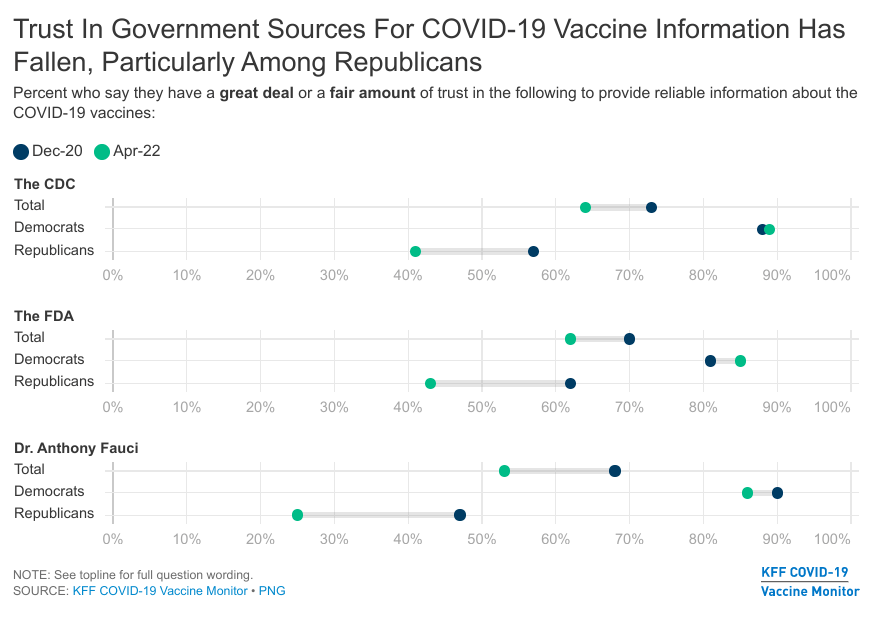
Confusion and belief in misinformation about COVID-19 is common. Misinformation about health care topics is nothing new, but social media, the polarization of news sources, and the pace of scientific development on COVID-19 all contributed to an environment that made it easier than ever for misinformation and deliberate disinformation to spread. In late 2021, nearly eight in ten adults said they had heard at least one of eight different false statements about COVID-19 and that they believed it to be true or were unsure if it was true or false. Unvaccinated adults were more likely to report believing COVID misinformation than those who are vaccinated.
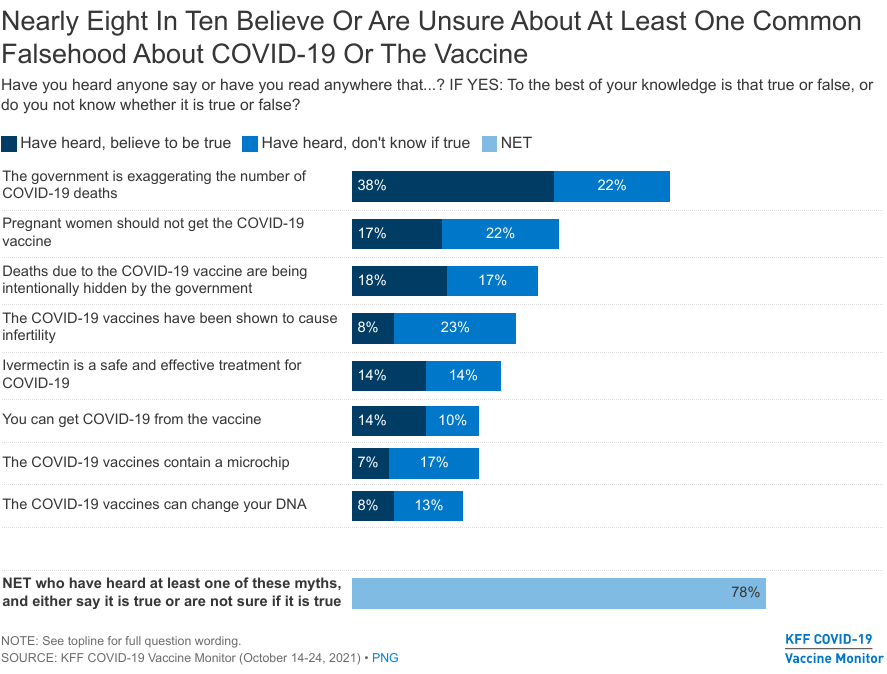
Early gaps in COVID-19 vaccination rates between Black, Hispanic, and White adults were largely eliminated by the end of 2021. When COVID-19 vaccines first became publicly available in early 2021, Black and Hispanic adults were less likely than White adults to report being vaccinated. This gap reflected both difference in vaccine access, such as not having paid time off work to get vaccinated or not having a trusted place to get the vaccine, as well as concerns and questions about vaccine safety and side effects. Over time, as public health officials and community groups worked to provide access and offer answers to people’s questions, this gap narrowed and eventually closed. Recent surveys find that the share of Black and Hispanic adults who report being vaccinated is roughly equal to the share among White adults. In fact, the share of White adults who say they will “definitely not” get vaccinated has been higher than the shares among Black and Hispanic adults in most recent polls.
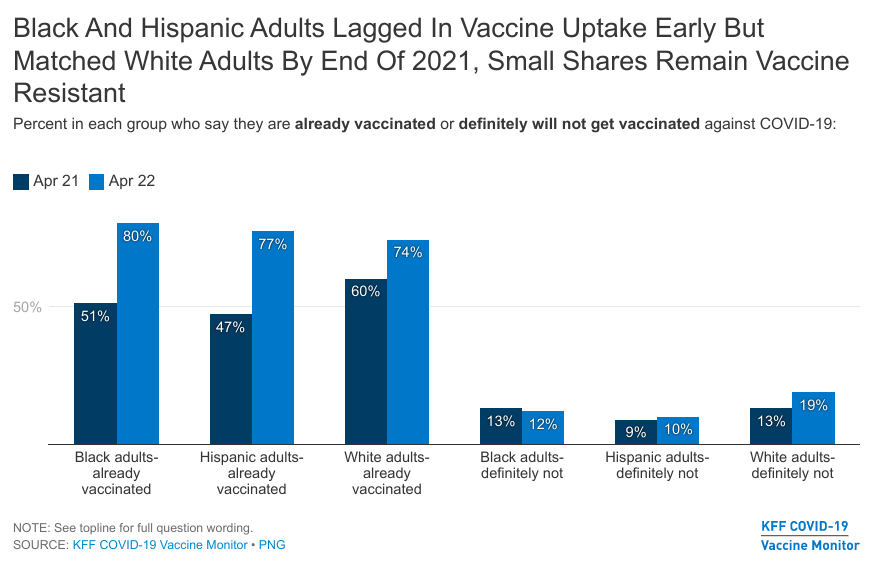
Partisanship played a strong role in self-reported public health behaviors. Since the beginning of the pandemic, KFF COVID-19 Vaccine Monitor surveys have found a strong relationship between partisanship and people’s willingness to take preventive actions to protect themselves and others from COVID-19. Democrats have been consistently more likely than Republicans to report wearing masks, social distancing, and getting vaccinated for COVID-19. Immunocompromised people, regardless of partisanship, are also among the groups most likely to report taking precautions.
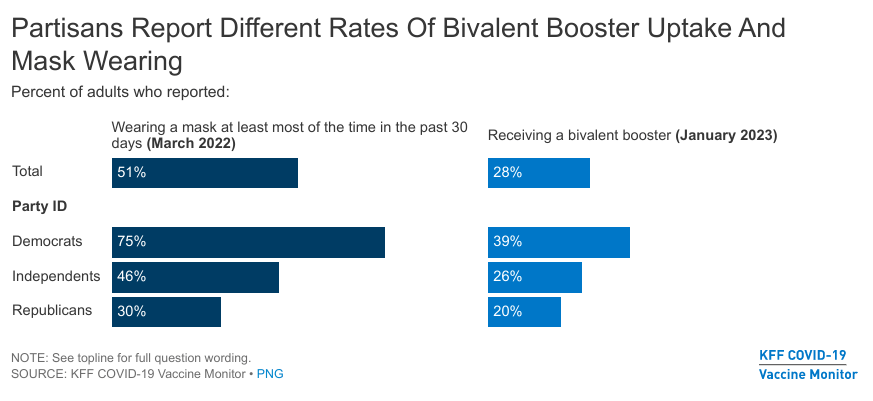
The COVID-19 pandemic has had broad impacts beyond health. The pandemic has taken a heavy toll on adults and children over the last three years. Whether it comes to their education, work, finances, mental or physical health, many – regardless of race, ethnicity and income – have reported feeling the negative effects of the pandemic. Parents are particularly likely to say their children have been negatively affected, with more than six in ten saying the pandemic has had a negative effect on their children’s education and nearly as many saying the same about their children’s mental health. About half of all adults say that the pandemic has had a negative effect on their own mental health, while four in ten say the same about their physical health and their financial situation.
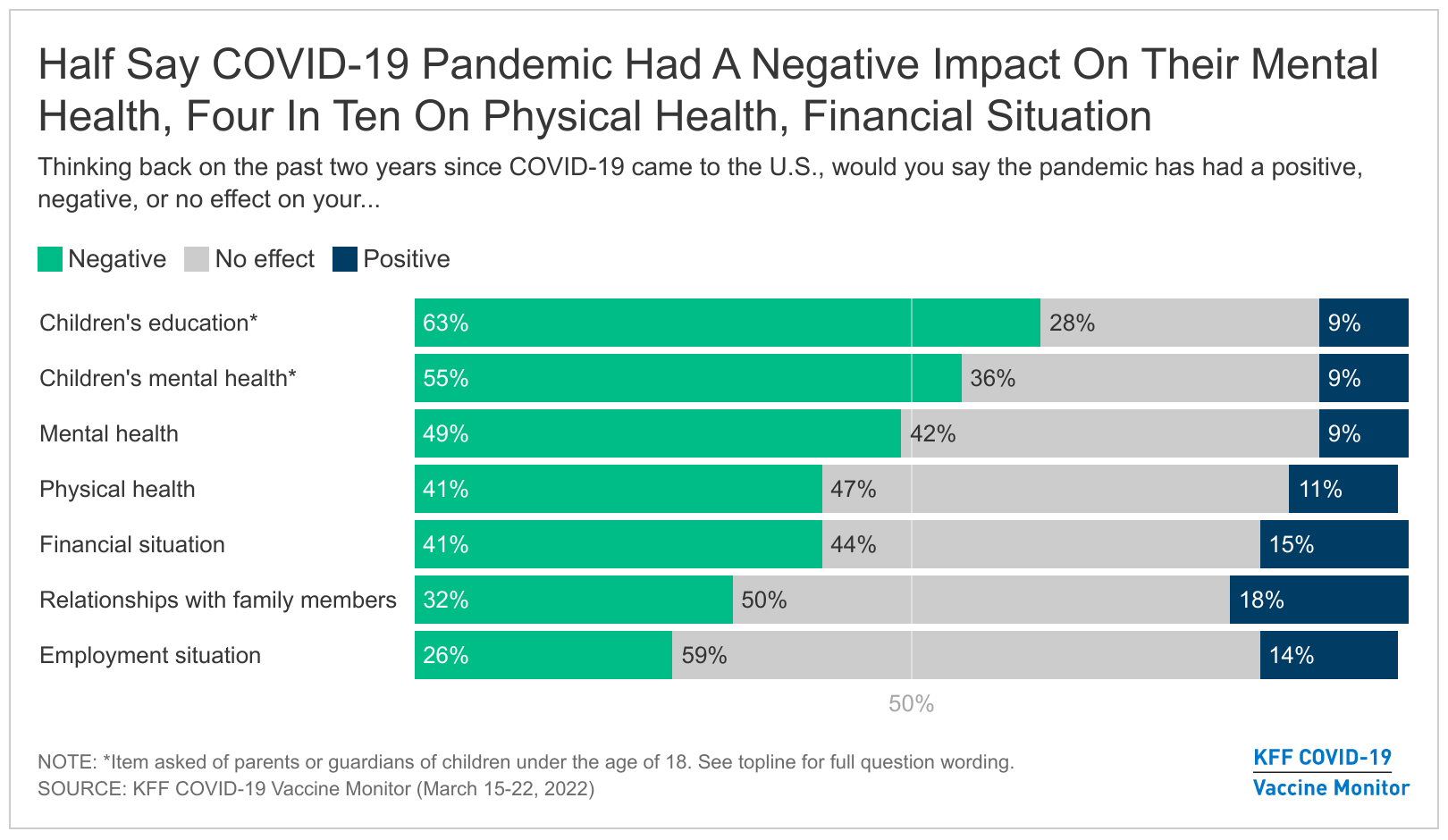
Ashley Kirzinger is Director of Survey Methodology and Associate Director for the Public Opinion and Survey Research team of KFF. Find Ashley on Twitter @AshleyKirzinger
Marley Presiado is a Research Assistant, Public Opinion & Survey Research.
Isabelle Valdes is a Research Assistant for the Public Opinion and Survey Research team at KFF.
Liz Hamel is Vice President and Director of Public Opinion and Survey Research at KFF, where she directs KFF’s polling work including the COVID-19 Vaccine Monitor, KFF Health Tracking Poll, and ongoing survey partnerships with news media organizations such as The Washington Post, Los Angeles Times, and CNN. Find Liz on Twitter @lizhamel
Mollyann Brodie is Executive Vice President and Chief Operating Officer at KFF and Executive Director of KFF’s Public Opinion and Survey Research Program. Find Mollyann on Twitter @Mollybrodie
Kaiser Family Foundation is an endowed nonprofit organization providing information on health issues to the nation. Any reposts of this article should credit the original author and provide links to both the GLP and the original article. Find KFF on Twitter @KFF

